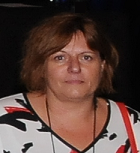UAHCI 2026, an affiliated Conference of the HCI International Conference, at its 20th edition, provides an established international forum for the exchange and dissemination of scientific information on theoretical, methodological and empirical research that addresses all issues related to the attainment of universal access in the development of interactive software. It comprehensively addresses accessibility and high quality of interaction in the user interface development life-cycle in a multidisciplinary perspective. This year, in recognition of the rapid adoption of immersive technologies and Artificial Intelligence pushing the boundaries of inclusive design, UAHCI particularly welcomes submissions on accessible Extended Reality (XR) and AI-enabled technologies.
The 20th International Conference on Universal Access in Human-Computer Interaction (UAHCI) intends to help, promote and encourage research in this field by providing a forum for interaction and exchanges among researchers, academics, and practitioners. The Conference solicits papers on the design, development, evaluation, use, and impact of user interfaces, as well as standardization, policy and other non-technological issues that facilitate and promote universal access.
Call for participation leaflet (142KB)
(Please create an account to the Conference Management System before you proceed with the submission)
The related topics include, but are not limited to:
- Theoretical foundations and methodologies
- Design for all methods and techniques
- Design for All education and training
- Design for user diversity
- Universal Access Development methods
- Accessibility guidelines and best practices
- User Interface adaptation for Universal Access
- User and Context awareness
- User, context and interaction modeling for Universal Access
- Context-awareness for Universal Access
- User, context and interaction monitoring for Universal Access
- Emotional and affective interaction for Universal Access
- Human-centered design and evaluation
- Evaluation of Accessibility, Usability, and User Experience
- Eye-tracking in user experience research
- Design for well-being and eudaimonia
- Design for Quality of Life Technologies
- Interaction Techniques and Technologies
- Alternative I/O techniques
- Adaptive and augmented interaction
- Interaction personalization
- Conversational Interaction for Universal Access
- Modality-independent and multimodal interaction
- Multi-sensory interfaces
- Inclusive affective technologies
- Sign Language Technologies
- Universal Access to Smart and Immersive environments
- Access to mobile interaction
- Access to the Internet of Things
- Accessibility of Smart and Intelligent Environments
- Assistive Environments
- Accessible games
- Accessible Extended Reality (VR, AR, MR)
- Accessible wearable interaction
- Inclusive avatars
- Universal Access to AI-enabled technologies
- Accessibility in application domains
- Access to the Web
- Accessible documents and multimedia
- Access to cultural heritage
- Access to education and learning
- Access to health technologies
- Access to on-line communities and eServices
- Accessible security and privacy
- Assistive Robots
- Mobility and way-finding
- Design for All in automotive industry
- Intelligent rehabilitation technologies
- Enabling Technologies
- Accessibility evaluation tools
- Architectures and tools for Universal Access
- Design for all tools
- Artificial Intelligence for Universal Acces
-

Program Chair
MARGHERITA ANTONA
Foundation for Research & Technology - Hellas (FORTH), Greece
-

Program Chair
CONSTANTINE STEPHANIDIS
University of Crete /
Foundation for Research & Technology - Hellas (FORTH), Greece -
Board Members
- Areej Al-Wabil
Alfaisal University, Saudi Arabia - Basel Barakat
Goldsmiths University of London, United Kingdom - João Barroso
INESC TEC and UTAD, Portugal - Ingo Bosse
University of Teacher Education in Special Needs, Germany - Laura Burzagli
Italian National Research Council, Italy - Pedro Cardoso
Universidade do Algarve & NOVA LINCS, Portugal - Silvia Ceccacci
University of Macerata, Italy - Marta Chinnici
ENEA, Italy - Nicole Darmawaskita
Arizona State University, United States - Carlos Duarte
University of Lisbon, Portugal - Pier Luigi Emiliani
Italian National Research Council, Italy - Andrina Granic
University of Split, Croatia - Gian Maria Greco
POIESIS, Italy - Simeon Keates
Global Banking School, United Kingdom - Georgios Kouroupetroglou
National and Kapodistrian University of Athens, Greece - Monica Landoni
Università della Svizzera italiana, Switzerland - Barbara Leporini
University of Pisa, Italy - Marco Manca
CNR, Italy - Daniela Marghitu
Auburn University, United States - Jorge Martin-Gutierrez
University of La Laguna, Spain - Javier Medina Quero
University of Granada, Spain - Afra Pascual-Almenara
University of Lleida, Spain - Joao Rodrigues
University of Algarve, Portugal - Frode Eika Sandnes
Oslo Metropolitan University, Norway - J. Andres Sandoval-Bringas
Autonomous University of Baja California Sur, Mexico - Hiroki Takada
University of Fukui, Japan - Philippe Truillet
University of Toulouse, France - Kevin Tseng
National Taipei University of Technology, Taiwan - Gerhard Weber
TU Dresden, Germany
Disclaimer - Political Neutrality
The HCI International Conference respects the decisions of all its contributors, engaged in any way, regarding their institutional affiliations and designations of territories, in all material / content published in its website, taking a neutral stance in relation to any disputes or claims. Moreover, the HCI International Conference fully concurs with the Territorial Neutrality Policy of Springer Nature, Publisher of its proceedings.


